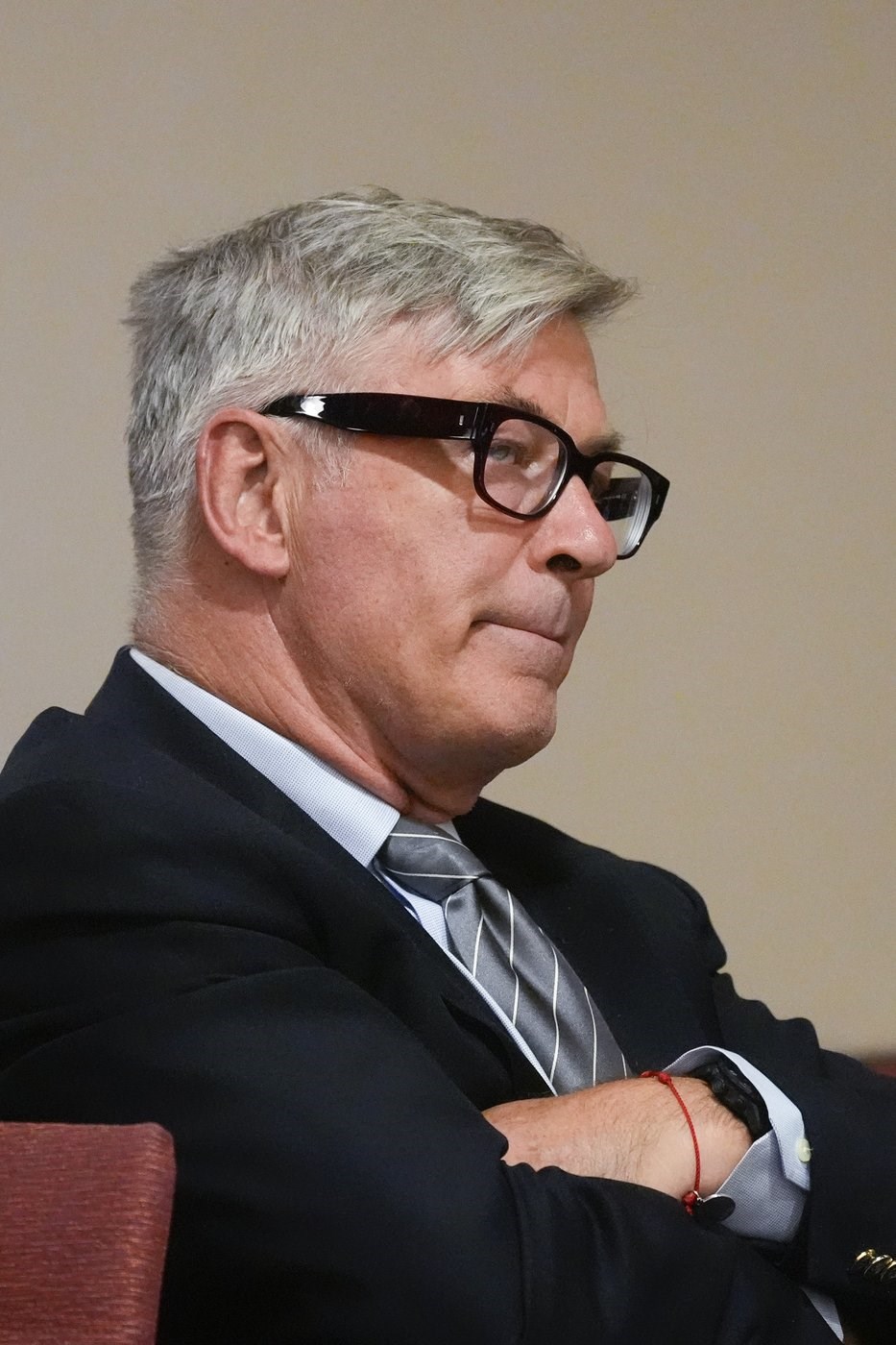Alec Baldwin ’s role as a producer of the Western film “Rust” isn’t relevant to the involuntary manslaughter trial over a fatal shooting on set, a New Mexico judge decided Monday.
The move is a major setback for prosecutors just as trial was about to begin. They had planned to present evidence that showed how Baldwin bore a special responsibility — as co-producer, well beyond that of the actor holding the gun — for the dangerous environment that led to the deadly shooting of cinematographer Halyna Hutchins during a rehearsal.
“I’m having real difficulty with the state’s position that they want to show that as a producer he didn’t follow guidelines and therefore as an actor Mr. Baldwin did all of these things wrong that resulted in the death of Ms. Hutchins because as a producer he allowed these things to happen,” Judge Mary Marlowe Sommer said. “I’m denying evidence of his status as a producer.”
Special prosecutor Erlinda Ocampo Johnson argued unsuccessfully that Baldwin was “keenly aware” of his safety obligations as a producer, in an attempt to bolster an alternative theory of guilt beyond negligent use of a firearm. The prosecution has tried to link Baldwin’s behavior on set to “total disregard or indifference for the safety of others.”
In the courtroom Monday, Baldwin sat between lead attorneys Luke Nikas and Alex Spiro. He appeared to listen intently, taking occasional notes on a yellow legal pad and handing written messages to an attorney. Baldwin wore glasses and close-cropped hair.
The trial starts Tuesday with jury selection and is scheduled to last 10 days.
Last week, the judge cleared the way for crucial firearms experts for the prosecution to testify about Baldwin's handling of the revolver and whether the gun was functioning properly prior to the fatal shooting.
On Monday, the judge sided with prosecutors to exclude at trial the summary findings from a state workplace safety investigation that places much of the blame on assistant director Dave Halls. Halls has pleaded no contest to negligent use of a firearm and may be called to testify at Baldwin’s trial.
Prosecutors say the workplace safety investigation was incomplete, unreliable and glossed over Baldwin's responsibilities in the fatal shooting.
Rust Movie Productions paid a $100,000 fine to resolve violations of state safety regulations that were characterized as “serious” but not willful, under a 2023 settlement agreement. Several witnesses to the workplace safety investigation are likely to be called to testify at Baldwin's trial.
Prosecutors also will be able to present at trial graphic images of Hutchins' injuries from an autopsy report, over objections from the defense, as well as police lapel camera video of the immediate aftermath of the shooting as medics arrived on set to treat the wounded Hutchins and Souza.
Baldwin is charged with a single felony count of involuntary manslaughter punishable by up to 18 months in prison if he's convicted.
Hannah Gutierrez-Reed, the armorer on set, was convicted of involuntary manslaughter in Hutchins' death and sentenced to 18 months in prison. She is appealing the conviction.
In October 2021, Baldwin was rehearsing a cross-draw maneuver with the revolver when the gun went off, killing Hutchins and wounding director Joel Souza.
Baldwin has pleaded not guilty and claims the gun fired accidentally after he followed instructions to point it toward Hutchins, who was behind the camera. Unaware the gun contained a live round, Baldwin said he pulled back the hammer — not the trigger — and it fired.
Baldwin’s attorneys successfully sought to bar discussion at trial of fatal gun incidents on movie sets, including actor Brandon Lee's death from a shot to the abdomen while filming a scene from “The Crow” in 1993. In that instance, a makeshift bullet was mistakenly left in a gun from a previous scene and struck Lee while filming a scene that called for using blank rounds.
Prosecutors have agreed not to elicit testimony about “The Crow,” but also contend that Baldwin knew about safety risks posed by guns — even when live rounds are not present.
Marlowe Sommer said she’ll allow just a single reference at trial to the fact that blank rounds without a projectile can be fatal. Attorneys for Baldwin argue that it was inconceivable that live rounds would wind up on set.
The judge sided with prosecutors in excluding from trial a letter signed by crew members that disputes the characterizations of the “Rust” set as chaotic or dangerous prior to the fatal shooting.
Another pretrial motion might defuse snipping between the prosecution and defense teams. Prosecutors want the judge to preclude accusations of “prosecutorial misconduct” and “personal attacks."
Marlowe Sommer said discussion at trial of prosecutorial misconduct will be limited to testimony and expert analysis of the gun in the fatal shooting and FBI forensic testing that damaged the firing mechanism. Defense attorneys argue that may have destroyed possible exculpatory evidence.
The judge ruled evidence and arguments designed to garner sympathy for Baldwin also won't be allowed at trial, including indications of remorse or the impact of events on his family. Prosecutors say those arguments have no bearing on determining guilt.
Baldwin is a three-time Emmy winner who has gone from star and leading man to bit player to scene stealer, at times going years without a major role in a hit film or show. But he’s remained a household name for nearly 35 years, largely on the strength of his real-life personality: as an outspoken liberal, talk-show guest and the king of all “Saturday Night Live” hosts.
Morgan Lee, The Associated Press




